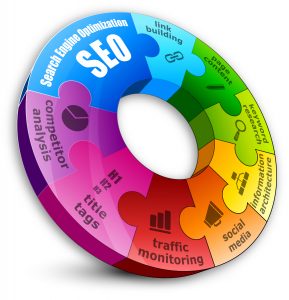How can you identify if your website has been affected by black hat SEO practices, and what steps can you take to address it?
Black hat SEO practices can negatively impact a website’s reputation and visibility in search engine results. If you suspect that your website has been affected by black hat SEO practices, it is important to take action to address the issue as soon as possible. In this article, we will discuss how you can identify if your website has been affected by black hat SEO practices and what steps you can take to address it.
( Searching in Google “Customer Relationship Management“? Contact us today!)

Identifying Black Hat SEO Practices.
There are several signs that your website may have been affected by black hat SEO practices, including:
- Sudden Drops in Traffic – If you notice a sudden drop in traffic, it may be a sign that your website has been penalized by search engines. This can occur when search engines detect the use of black hat SEO practices, resulting in a loss of visibility in search results.
- Unnatural Backlink Profile – If your website has an unnatural backlink profile, it may be a sign that black hat SEO practices have been used. Unnatural backlinks are often low-quality links that are not relevant to your website’s content.
- Keyword Stuffing – If your website’s content is stuffed with keywords in an unnatural way, it may be a sign that black hat SEO practices have been used. Keyword stuffing is a black hat SEO technique that involves using excessive amounts of keywords in an attempt to manipulate search rankings.
- Duplicate Content – If your website has duplicate content, it may be a sign that black hat SEO practices have been used. Duplicate content is content that appears on multiple pages of a website or on other websites.
Steps to Address Black Hat SEO Practices.
If you suspect that your website has been affected by black hat SEO practices, there are several steps that you can take to address the issue, including:
- Conduct an SEO Audit – Conducting an SEO audit can help identify any black hat SEO practices that may be affecting your website. An SEO audit will analyze your website’s backlink profile, content, and technical structure to identify any issues.
- Remove Unnatural Backlinks – If your website has an unnatural backlink profile, it is important to remove these links. This can be done by contacting the website owner and requesting the link to be removed. If this is not successful, you can use the Google Disavow Tool to disavow the links.
- Remove Duplicate Content – If your website has duplicate content, it is important to remove it. This can be done by deleting the duplicate content or using a canonical tag to indicate the original source of the content.
- Optimize Content – If your website’s content has been stuffed with keywords, it is important to optimize the content. This can be done by removing excessive keywords and focusing on creating high-quality, relevant content.
- Follow SEO Best Practices – To avoid future penalties, it is important to follow SEO best practices. This includes creating high-quality content, optimizing website structure, and building relevant links.
In conclusion, if you suspect that your website has been affected by black hat SEO practices, it is important to take action to address the issue. By identifying any black hat SEO practices and taking steps to address them, you can improve your website’s visibility and reputation in search engine results. By following SEO best practices and avoiding black hat SEO techniques, you can build a long-term brand reputation and achieve sustainable growth for your website.

Recent Comments